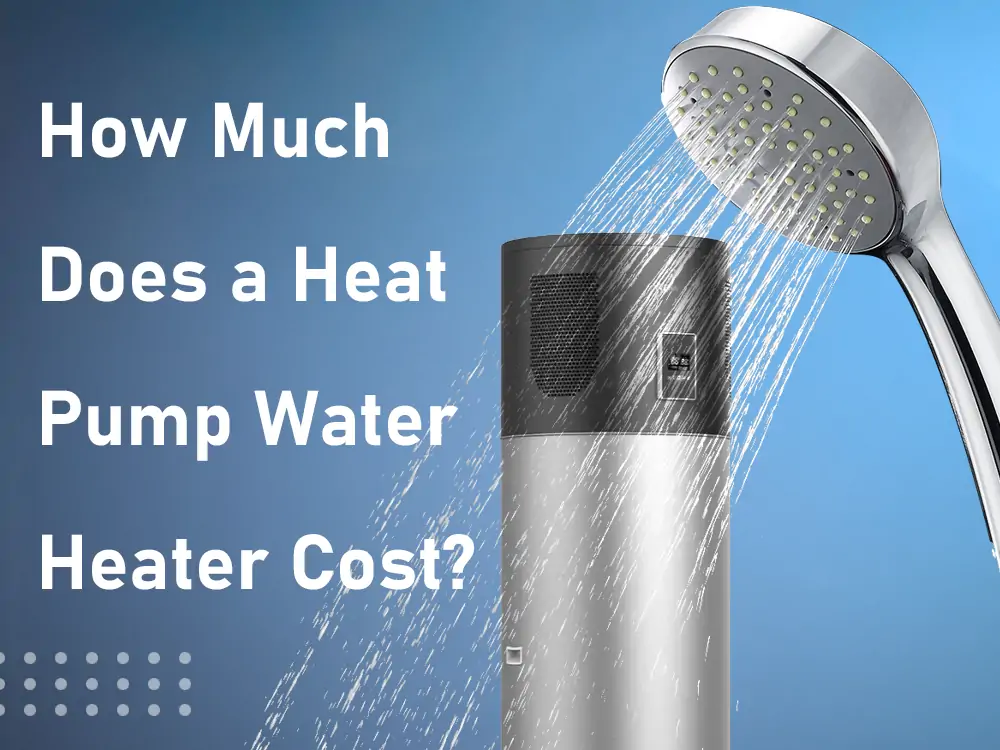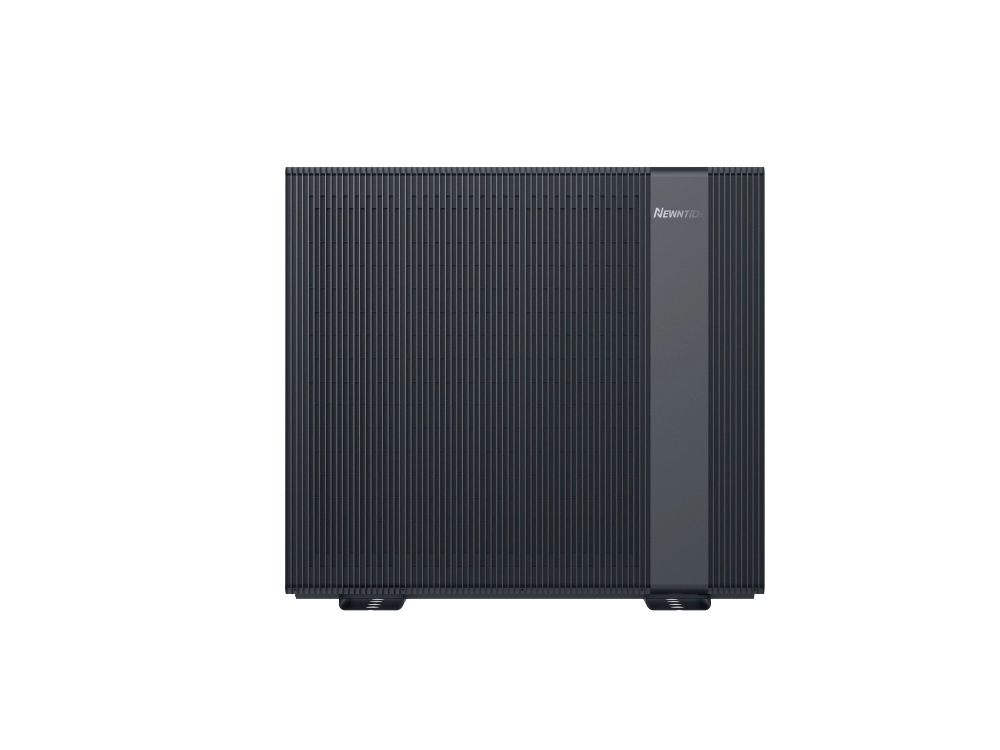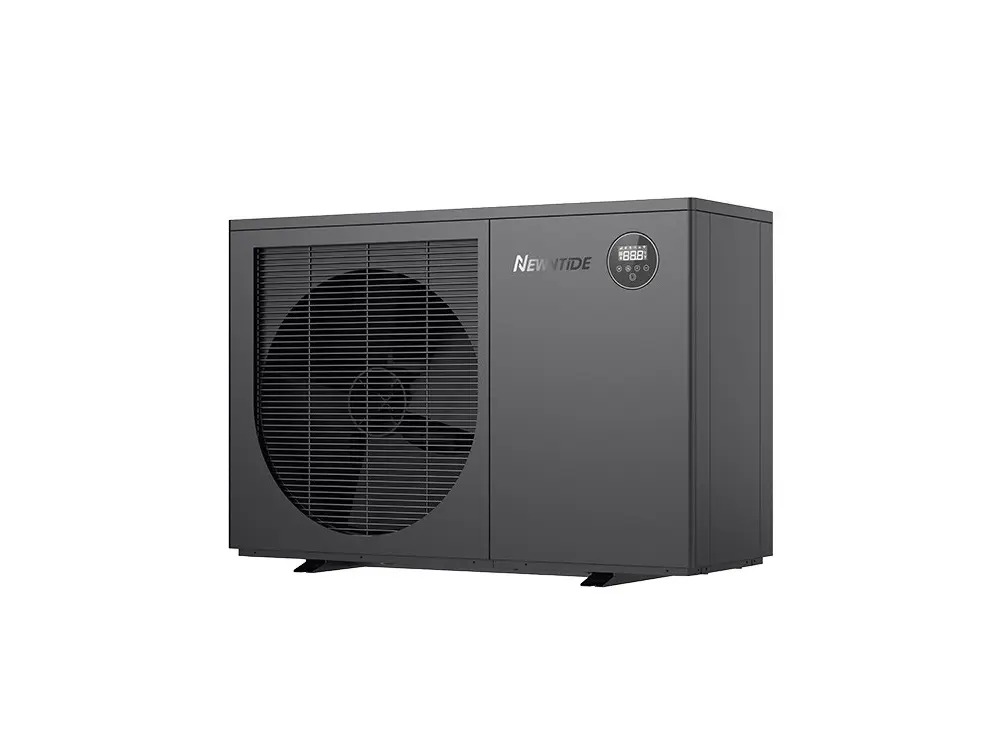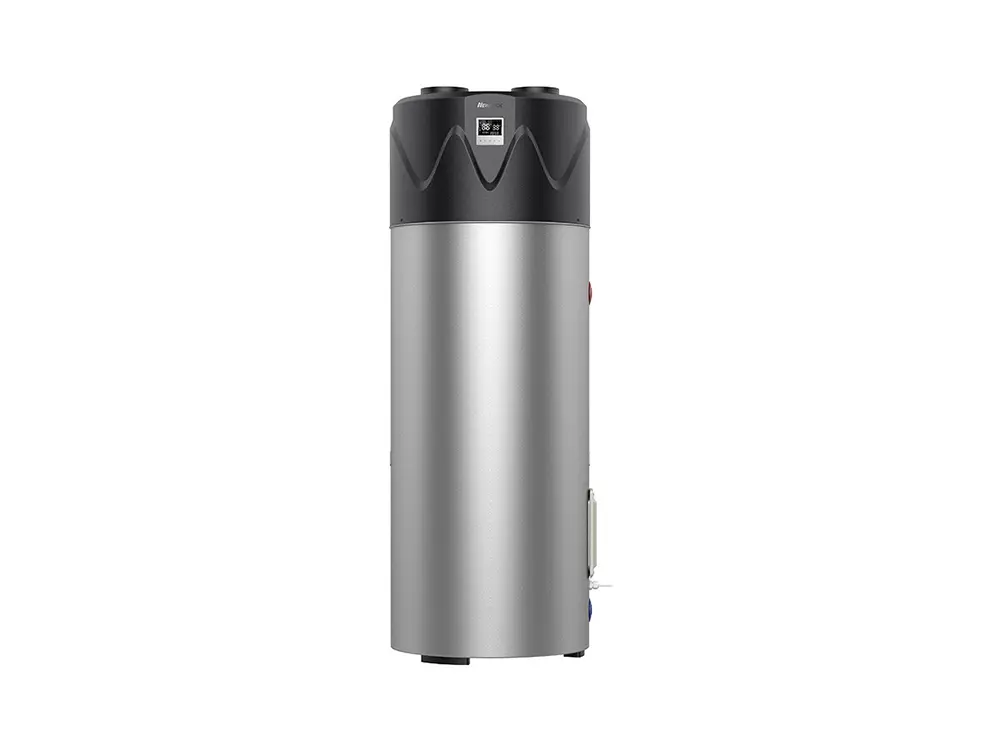
Undeniably, heat pump water heaters only efficiently heat water for varied domestic tasks. That’s inclusive of bathing, laundry, dishwashing, etc.
Moreover, they operate on the same integral principles as the regular heat pumps. That makes them more efficient, contrary to conventional gas or electric water heaters.
Yet the question is, what is the heat pump water heater price? Here, we’ll explore everything from its unit and installation costs to factors that affect it. We’ll further probe into its hidden expenses and the long-standing savings it can result in.
Lastly, we’ll provide information on the incentives available for such appliances and describe their worthiness.
Cost Analysis
Let’s take the case of the United Kingdom (UK), a European country. On average, heat pump water heaters cost £8750 to £12500 here.
Their expenses are low compared to regular heat pumps. The reason is that they only provide hot water to fulfil your necessities. They don’t provide hot water for central heating.
The following table elucidates heat pump water heater costs concerning household size. The approximate lowest, highest, and average costs are also provided:
| Household size | Lowest costs | Highest costs | Average costs |
| 2-bed small-sized bungalow | £7450 | £8900 | £8250 |
| 2-3 bed terraced household | £7950 | £9700 | £9450 |
| 2-3 bed semi-detached house
|
£8950 | £10925 | £10615 |
| 3-4 bed detached household | £10650 | £14500 | £12900 |
Unit Costa
Typically, the price of the heat pump water heater will be provided in your quote. Looking at the unit-only expenses, you may have to pay approximately between £1950- £3500. You’ll also necessitate an air-source inverter priced between £2950- £6500.
Installation Cost
The average heat pump water heater installation expenses range between £8750-£12500. That encompasses both unit costs (supply) and labour.
Generally, plumbers charge between £250-£375 for that kind of work daily. Installing such an appliance typically takes 1-3 days.
What Factors Affect Price?
Heat pump water heater cost relies on varying factors. Some prominent examples of these include:
1. Size
Sizing is a prominent factor to consider when it comes to the heat pump water heater price. It implies the capacity and how much water (in litres) it can process.
The more litres the system holds, the greater the expenses. Overall, larger homes with a greater number of bathrooms necessitate larger sizing. The motive is to fulfil your household’s heating requirements.
2. Efficiency
Heat pump water heaters with superior efficiency ratings (like higher COP) can cost more. That implies it typically involves a superior initial investment against traditional water heaters.
Yet, these elevated efficiency models often encompass advanced features, components, and technologies. That can contribute to the elevated upfront expenses but provide potential long-standing savings.
3. Installation Complexity
The cost of a heat pump water heater also relies on installation complexity.
It typically requires 1-3 days to install such a system. It depends on the complexity associated with the design and planning procedures. Having at least 28.3 m³ of air space around the appliance is pivotal.
4. Location
Location is another factor affecting the heat pump water heater cost. As you see, such devices must be installed in a location with surplus heat. Namely, it can be a furnace room.
You may require newer water inlet and outlet pipes. The location of your prevailing pipework typically determines this, and it can augment your expenses.
Hidden Costs to Consider
There can be hidden expenses towards installing and functioning heat pump water heaters. These are:
Electrical Upgrades
You may be replacing an electric water heater with such a device. In that case, you already have the necessary setup. You may be eyeing substituting a gas water heater. In that instance, you may be required to hire an electrician to perform electrical upgrades.
Furthermore, your plumber may require some supplies and tools. The motive is to set up the heat pump water heater. The quantities and expenses of these supplies and tools rely on your household and the installation complexity.
Maintenance
Akin to air-source heat pumps, heat pump water heaters necessitate some maintenance. That’s to ascertain optimal functioning for their lifespan. That may involve more expenses and occasional checks. Doing that can avert the possibility of incurring any added repair expenses.
Old Equipment Disposal
Some plumbers may impose a small fee to remove and dispose of your old water heater. Yet many plumbers carry out these tasks for free.
Long-Term Savings
A heat pump water heater can significantly bring about long-term savings. That’s especially true if you shift to one from a gas or electric water heater.
Energy savings
Heat pump water heaters are thrice more efficient than electric water heaters. So, they utilize three times less electricity.
It takes approximately around £140 yearly to run a heat pump water heater. It’s for a UK household. That’s in contrast to approximately £420 yearly for an electric water heater.
You may shift to a heat pump water heater from a gas one. In that case, your running expenses may go up slightly. That’s because electricity is typically priced around fourfold greater than gas in the UK.
Yet, the distinction between running expenses isn’t great. It’s owing to the heat pump water heater’s extra efficiency. You’ll only spend around £31 more yearly. That’s if you’re shifting to a heat pump water heater from a gas one.
Usable Life
Heat pump water heaters have a usable lifespan of up to 15 years. That implies they are more durable. That’s especially compared to the standard electric water heaters that last 10-12 years.
Payback Period
The savings from such systems can translate into an average payback period of around 3-6 years. That’s especially true when compared to buying a conventional electric water heater.
Incentives and Rebates
Let’s examine the incentives and rebates in the UK and the rest of Europe for such systems:
UK
Currently, the UK has no grants obtainable for heat pump water heaters. Grants like the Boiler Upgrade Scheme here only cover heat pumps. They should deliver both hot water and heating. Heat pump water heaters solely do the former.
The ECO4 scheme can probably partly fund the installation of such water heaters. That’s especially true in social housing. But this hasn’t come into effect yet.
Rest of Europe
Concerning Europe and excluding the UK, incentives exist for heat pump water heaters. Such measures can encompass:
- Tax rebates
- Grant programs
- Low-interest loans
Let’s also consider some examples of European countries that provide incentives for such systems:
- France: Provides grants of up to €1200.
- Croatia: Provides a grant of up to €4250 and up to 40% subsidy.
- Belgium: Provides grants between €400 – 1600.
- Lithuania: Provides grants of up to a maximum of €14500.
- Italy: Tax deduction per Bonus Casa, Ecobonus, and Superbonus tax incentives.
Are Heat Pump Water Heaters Worth It?
Heat pump water heaters are indeed worth the investment for many households. They can help bring about long-term savings, lessen energy bills, and are environmentally friendly.
That’s especially up against other water heater types. Here are a few noteworthy reasons:
Heat Pump Water Heaters vs. Gas Water Heaters
- Healthier and safer: Heat pump water heaters are commonly healthier and safer. In contrast, gas-based appliances like gas water heaters can cause carbon monoxide poisoning. That’s especially true if they aren’t maintained or vented properly. To diminish the risk, it’s best to avoid gas appliances.
- More energy efficient and eco-friendly: Heat pump water heaters are among today’s most energy-efficient options. They use far less energy and emit fewer greenhouse gas emissions when compared with gas water heaters.
- Long lifespan: Heat pump water heaters can last for a more extended period than gas water heaters. They can endure up to 15 years, while their counterparts endure for 10-12 years.
- Quiet operation: Heat pump water heaters have a silent operation. Unlike gas water heaters, their sound levels don’t increase much when the appliance starts.
Heat Pump Water Heaters vs. Electric Resistance
- Lesser Running Costs: Heat pump water heaters have diminished running costs than electric resistance (aka electric water heaters).
- Elevated efficiency: Heat pump water heaters have elevated efficiency (around 300% on average). That implies they produce three heat units for every energy unit they draw upon. Electric water heaters, in contrast, are typically 100% efficient.
- Long lifespan: Heat pump water heater can endure for longer (up to 15 years). Their electric counterparts typically last up to 10-12 hours on average.
- Eco-friendly: Heat pump water heaters have a diminished carbon footprint compared to electric water heaters.
Heat Pump Water Heaters vs. Tankless Water Heaters
- More capacity: Heat pump water heaters are a source of more reliable hot water capacity. For instance, a 180-litre-capacity heat pump water heater can fulfil the needs of a 3-bedroom household. In contrast, a tankless water heater may struggle to fulfil the household’s demand.
- Safer: Heat pump water heaters are safer than gas-fired tankless water heaters. The former doesn’t burn fuel, resulting in a lower risk of carbon monoxide leaks. It’s one of the safest selections available for household water heating. Gas-powered tankless water heaters burn fuel, resulting in a risk of carbon monoxide leakage.
Conclusion
Heat pump water heaters are eco-friendly for homes to achieve hot water requirements. They last longer than conventional water heaters and incur lower running expenses. They also have high efficiency.
Despite their higher initial costs, they can lead to saving money in the long run. That makes them an appealing long-term investment.
You may want to purchase one of NEWNTIDE heat pump water heaters. Then the following should be your subsequent steps:
- Assess your household requirements for a fitting appliance.
- Check for available rebates, grants, and other incentives in your region.
- Get quotes.



